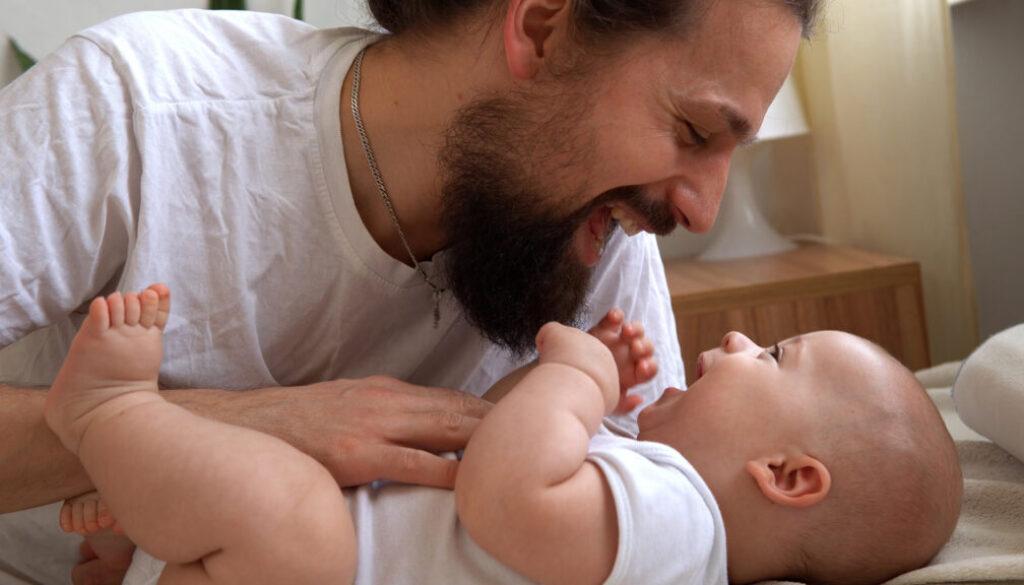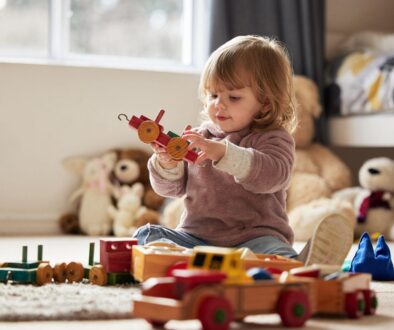World of Play for Newborn Babies

Babies use their senses and bodies to play as early as birth to six months of age. As they begin to move, they soon discover that they can change what they see, hear, or feel through their own actions. They use their senses and emerging physical skills to learn about the people and objects around them. They touch different textures and put things in their mouths. Soon, infants will thrive on exploration and interaction.
All children develop at different rates, but the following suggestions should give you a general idea of how to support your child’s development through play.
- You are Their Best Toy: Make facial expressions, sing, dance, and gently move their body parts to a rhythm. These are the kinds of rich interactions that help babies develop relationships and learn about the world around them.
- Simple Rattles and Soft Toys Are Perfect: Babies love shaking toys and making noise. When they hear the reaction after they shake or touch a toy, they learn cause and effect. Other good toys include objects that hang overhead for grasping, toys that make noise when they are kicked, and toys of variety textures.
- Good Books are Simple: Books for this age are best when they have one or two images per page and simple rhyming stories. Show your baby pictures and read the stories. Allow them to watch your mouth and facial expressions as you read. Name and point to objects on the page and don’t worry about finishing the story.
- Stacking Cups and Blocks: Build a tower for your baby to knock over. Babies at this age are into dumping and knocking down.
- Musical Instruments, Peek-A-Boo Toys, and Mirrors: These will help your baby master concepts like object permanence, action, and reaction, as well as self-discovery.
- Nesting Blocks, Shoe Boxes or Empty Milk Jugs: These are wonderful for stacking, filling, and dumping.
- Large Household Objects: Laundry baskets, empty boxes, offer quick homemade fun for a baby to explore by climbing into, pushing, and pulling. Gently give your baby a “train ride” by pushing them around a room.
- Interacting With Your Baby: While interacting with your child describe what you are hearing, seeing, and smelling as you are exploring their new world. Descriptive language is important to be incorporated in activities, trips to the grocery store, diaper changes, and mealtimes.
There are many things you can do to foster play for your child, but through play, you are setting your child up for healthy development. Understanding the value play has in their lives and how to encourage play experiences, is a great gift that you can give your child. Keep in mind, that play and learning can come through simple and inexpensive household items, not just by fancy gadgets and gizmos. Simple play items often lend themselves to various types of play, rather than one specific way of playing with it for countless hours of fun and learning.





